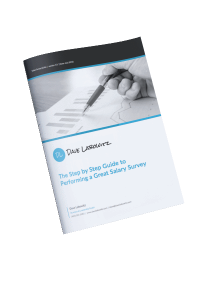“How do you scale a service business?” is by far the most common question I get as a business coach. Sometimes the question is phrased differently, but at the heart of it is a frustrated entrepreneur or executive who wants their business to scale gracefully but can’t figure out how to make it happen. This two-part blog article will be a deep dive into the who, what, why, when, and how of scaling a service business. If you're looking for Part 2, you can find it here.
What does it mean to scale a business? To have achieved scale?
The term “scale” gets thrown around so much it can be confusing as to what it means. For the purposes of this article, scaling your business means increasing your revenue at a pace your backend operations can keep up with. As your revenue increases, your business’ net profit margin will also go up, or at least stay flat. If your revenue is increasing and your net profit margin is decreasing (more work for less profit!), you’re failing to scale adequately.
To have “achieved scale” means you’ve figured out how to scale your business successfully. At this point, your revenue and operations have reached a sufficient size where you’re able to realize “economies of scale.” This means, because of the amount of business you’re doing, some things have gotten cheaper for you. A simple example of this is a product business which pays $3 per unit for 1,000 or fewer units for resale. However, it can buy the same product at $2 if it orders 10,000 or more at a time. This is how achieving scale creates additional profitability. It's obviously a bit more complicated for service businesses, though. Team members don't get less expensive just because you hire more of them!
Who needs to scale?
There are generally two profiles of business owners/leaders who reach out for coaching when battling the challenge of scaling their service business.
Solopreneurs
Solopreneurs generally start their service business without much thought to scale. Many of them are fleeing a job that makes them unhappy and have domain expertise in their field. They want to flip from using their skill set to work for someone else to using their skill set to work for themselves. Their initial goal is to replace their salary income and they may not have thought that much beyond that goal. What these solopreneurs fail to account for at the beginning is that their revenue growth is capped by their personal time limitations. If they spend half of their time on sales and admin work that leaves only half of their time for revenue-producing service delivery.
Small enterprise founders and/or executives
Small business leaders are generally a bit further down the path to scalability when they run into trouble. Most of the time they have a small team that has evolved organically. They have some very key players on that team who seem to hold the entire business together. Maybe one or more of these key team members leave unexpectedly, or maybe recruiting has become a challenge. As their business has grown, the quality of their service delivery has started to fall. Upset customers show up where there were previously none. Customers who work with the senior team members are happy but customers unlucky enough to work with the newer team members get frustrated. It may manifest a number of different ways, but it’s obvious that the services team is struggling. To compensate, maybe the company has started looking for external capital, only to be told by multiple VCs that “we don't fund service businesses because they don't scale well.”
Why scale your business?
A lot of people want to grow their business for growth’s sake. I get it; everyone wants their business to be bigger and more profitable. But I recommend a more intentional approach to growth planning. In the case of service businesses, scale inevitably brings along more complexity in the form of more headcount. Aside from just pure profit, though, there are some clear reasons why scale is important.
You won’t be able to raise outside capital without solving scalability
It is NOT true that service businesses can’t scale. However, until you’ve proven that you CAN scale no VC or angel will touch your business. Professional money is adept at avoiding business risk. The two biggest business risks to a small enterprise are the ability to demonstrate product-market fit and ability to scale successfully. They’ll want to see both before striking a check. This creates a challenge for you: it’s easier to scale with financing than without. It’s possible, though!
You won’t be able to sell your business for as much without achieving scalability
Private equity companies will be far less likely to buy a service business if you haven’t demonstrated your ability to scale. Service businesses, by nature, generally run at a smaller net margin than other businesses. This negatively impacts valuation multiples. Achieving scale will both maximize your net margin percentage (through efficiencies) and increase your overall net profit dollars. Both help you negotiate a higher multiple. In fact, you’ll need to reach a certain level of net profit (in the millions) before PE will be in play, anyway. If you’re smaller than that, your best bet will be to sell to a strategic acquirer in your space. Strategic acquirers may ascribe extra value to your client book and envision synergies between your business and theirs. If you’re a solopreneur and you’re the entire business, simply, you won’t ever be able to sell your business. If you want to exit the business rather than close the business when you retire, you must figure out how to scale first.
The point before your service business reaches scale is generally the most stressful
Achieving scale has a lot to do with efficiency and replicability. A hallmark of an organization that hasn’t figured out scalability is an over-stressed, stretched-thin team. Your best team members will end up bearing the brunt of the work. This will yield a substantial risk of losing “irreplaceable” team members. If you’re a solopreneur, you’ll be bearing this weight all alone. If you work too many hours you'll be rushing madly towards burnout.
What does it take to scale a service business?
All businesses and industries are different but there are certain commonalities when it comes to scaling service businesses. In order to scale you’ll need:
An obsessive focus on quality
You can define “service business” as “stuff delivered to your customer by humans.” Without an obsessive focus on quality your service delivery can vary wildly by which team member is delivering it. Also, as your team gets busier and busier it’s easy for quality to slip. You’ll need to set a cultural standard that quality is critical and train your team accordingly.
Enduring customer relationships
By the nature of being a service business, there will be a lot of interaction with your customers. Since most service businesses rely on recurring revenue, building long-term, trust-based relationships with your customers will be key to growing revenue. As you work toward achieving scale it’ll be critical for you to be able to rely on direct and honest customer feedback.
Deep detail and process orientation
We’ll discuss this in more detail in part two of this article, but for now, know that scale is achieved through repeatable and efficient processes. You’ll need to be meticulous about your process in order to make each facet of your service delivery efficient and repeatable.
Leaders with high EQ
Scaling a service business is a people game. If you want to scale, it means hiring more and more people to deliver your service. Working with people can be challenging. Hiring a large, or even small team can be scary. If you want to scale, your EQ and that of your leadership team must be on point. Not only will you need to apply it to team management, but you’ll also need to apply it to your own growth! Lots of internal challenges pop up due to the people stuff, yielding plenty of growth opportunities.
Some amount of growth capital
All businesses need capital to scale. Product businesses need capital for R&D and inventory. Software businesses need capital to pay their development teams. Service businesses need capital to hire more team members to deliver their service. If you want to scale your service business, you’ll need to figure out how to pay for each additional hire.
Part 2 of this article discusses when and how to scale a service business. Click here to continue on to Part 2!






